| Country | Cost | Local_currency |
|---|---|---|
| India | USD 800 | India 66520 |
Treatment cost
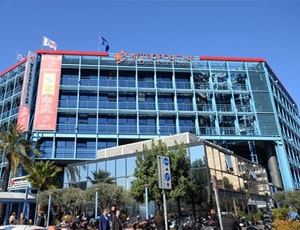
Apart from in-detail treatment procedures available, Metropolitan Hospital located in Pireas, Greece has a wide variety of facilities available for International Patients. Some of the facilities which are provided by them are Accommodation, Airport Transfer, Choice of Meals, Interpreter, SIM, TV inside room. Also listed below are some of the most prominent infrastructural details:


Types of Plasmapheresis in Thumbay University Hospital, Ajman and its associated cost
| Treatment Option | Approximate Cost Range (USD) | Approximate Cost Range (AED) |
|---|---|---|
| Overall Plasmapheresis Cost | 458 - 1548 | 1658 - 5889 |
| Therapeutic Plasmapheresis | 783 - 1559 | 2859 - 5841 |
| Donor Plasmapheresis | 442 - 791 | 1675 - 2843 |
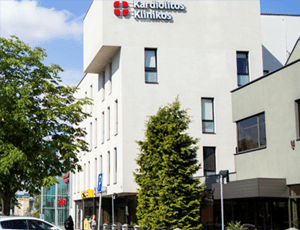
Apart from in-detail treatment procedures available, Kardiolita Hospital, Kaunas located in Kaunas, Lithuania has a wide variety of facilities available for International Patients. Some of the facilities which are provided by them are Accommodation, Airport Transfer, Choice of Meals. Also listed below are some of the most prominent infrastructural details:

Taoufik Clinique located in Tunis, Tunisia is accredited by JCI. Also listed below are some of the most prominent infrastructural details:

Apart from in-detail treatment procedures available, Riyadh Care Hospital located in Riyadh, Saudi Arabia has a wide variety of facilities available for International Patients. Some of the facilities which are provided by them are Accommodation, Airport Transfer, Choice of Meals, Interpreter, SIM, TV inside room. Also listed below are some of the most prominent infrastructural details:

Apart from in-detail treatment procedures available, Care National Hospital located in Riyadh, Saudi Arabia has a wide variety of facilities available for International Patients. Some of the facilities which are provided by them are Accommodation, Airport Transfer, Choice of Meals. Also listed below are some of the most prominent infrastructural details:
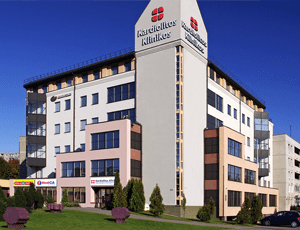
Kardiolita Hospital, Vilnius located in Vilnius, Lithuania is accredited by JCI. Also listed below are some of the most prominent infrastructural details:
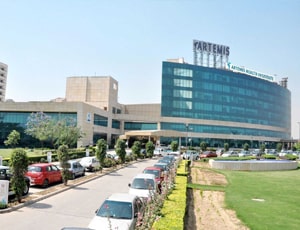
Types of Plasmapheresis in Artemis Health Institute and its associated cost
| Treatment Option | Approximate Cost Range (USD) | Approximate Cost Range (INR) |
|---|---|---|
| Overall Plasmapheresis Cost | 339 - 1121 | 28258 - 94139 |
| Therapeutic Plasmapheresis | 661 - 1141 | 55544 - 93313 |
| Donor Plasmapheresis | 331 - 555 | 27392 - 46420 |
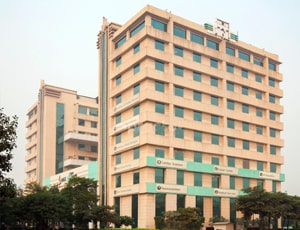
Types of Plasmapheresis in Max Super Speciality Hospital, Patparganj and its associated cost
| Treatment Option | Approximate Cost Range (USD) | Approximate Cost Range (INR) |
|---|---|---|
| Overall Plasmapheresis Cost | 306 - 1010 | 24859 - 83214 |
| Therapeutic Plasmapheresis | 612 - 1016 | 49882 - 83032 |
| Donor Plasmapheresis | 305 - 506 | 24872 - 41597 |

Apart from in-detail treatment procedures available, Farrer Park Hospital located in Connexion, Singapore has a wide variety of facilities available for International Patients. Some of the facilities which are provided by them are Accommodation, Airport Transfer, Choice of Meals, Interpreter, SIM, TV inside room. Also listed below are some of the most prominent infrastructural details:
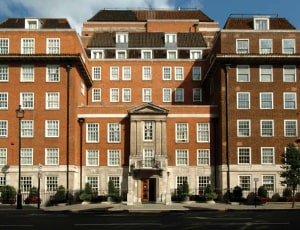
We, The London Clinic family, take pride in our reputation as a multi-disciplined healthcare facility. With skilled nurses and expert consultants, our medical teams are always focused to deliver the best individualized medical care. More than 1,000 nursing, clinical, and support staff are currently working with us to give our patients an extensive range of treatments. We use cutting-edge technologies to ensure a comprehensive range of healthcare services. Not only that, in order to make your stay with us comfortable enough, we equip our patient bedrooms with:
Patients from all over the world fly to us to get their procedures done by our specialist doctors, which is why we also provide our patient's concierge services. Our concierge services include:
The London Clinic has a zero-tolerance policy when it comes to hygiene and cleanliness. Our dedicated housekeeping team cleans every room every day between 8.00 am and 5.00 pm. They are also entitled to supply fresh towels every day and clean the rooms properly between patients.
We also have a day surgery unit based on the third floor at 20 Devonshire Place to make sure a hassle-free surgery as well as post-surgery care for our patients. Our cancer care unit at 22 Devonshire Place is also among our key services.
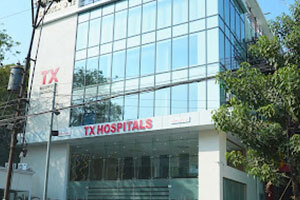
Tx Hospitals Group is one of the country’s fastest-growing and most significant chains of multi-super specialty hospitals. The first hospital was established in Hyderabad and six healthcare facilities (including projects under development) in two years since opening. It has been accredited by JCI and NABH certifications. It has a 200-bed capacity with more projects underway.
It offers a comprehensive array of integrated healthcare services, wellness centers, diagnostic labs, retail pharmacies, and fertility centers, ranging from clinics, health insurance, quaternary care facilities, and home healthcare. The hospitals are easy to reach in an emergency, considering the strategic locations of the hospitals within the cities of India. It caters to daycare surgeries across specialties such as general surgery, cardiology, neurology, ENT, dermatology, ophthalmology, vascular surgery, plastic surgery, cosmetology, orthopedics, pediatrics, gynecology, and obstetrics many more specialties.
It has state-of-the-art medical teams that utilize advanced technologies, including international evidence-based protocols, for providing extensive treatment in all specialties of medicine through a wide range. The team places a high priority on patient safety, compassionate care to all of its patients clinical excellence, dignity, quality, affordability, transparency, and accessibility of quality care to ensure that all of the patients receive the best possible care in a patient-friendly environment. The vision is to set new dimensions in healthcare by providing comprehensive medical services to patients.
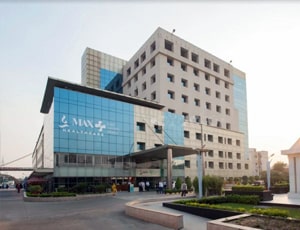
Max Super Specialty Hospital, Vaishali located in Ghaziabad, India is accredited by NABH, NABL. Also listed below are some of the most prominent infrastructural details:
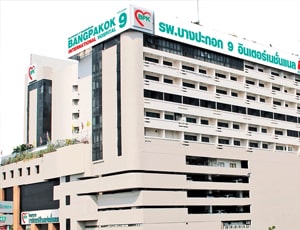
Types of Plasmapheresis in Bangpakok 9 International Hospital and its associated cost
| Treatment Option | Approximate Cost Range (USD) | Approximate Cost Range (THB) |
|---|---|---|
| Overall Plasmapheresis Cost | 561 - 1661 | 20298 - 59194 |
| Therapeutic Plasmapheresis | 901 - 1724 | 31997 - 60837 |
| Donor Plasmapheresis | 550 - 914 | 20400 - 31980 |
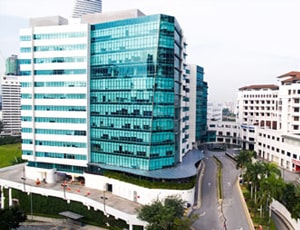
Parkway Pantai located in Kuala Lumpur, Malaysia is accredited by JCI. Also listed below are some of the most prominent infrastructural details:
Plasmapheresis is the procedure of removal of some of the plasma from the blood. Doctors perform the plasmapheresis through a machine. The doctor may substitute the removed plasma with a healthy plasma or a plasma substitute. Various conditions require plasmapheresis. These conditions are hemolytic uremic syndrome, fulminant Wilson disease, autoimmune diseases, pancreatitis, thrombocytopenic purpura, and hyperviscosity syndrome. The efficacy and relief depend upon the condition and its severity. In some cases, the patient experiences relief within 1-2 days after the procedure. In other cases, it may take a few weeks until the patient experiences relief in symptoms. In most cases, the patient requires a repetition of the procedure. The patients may also experience certain side effects. These include blurred vision, fatigue, faintness, cramps, and cold. Some patients have an increased risk of blood clotting, infection, and allergic reactions. The doctor may not recommend plasmapheresis to people who have hypocalcemia, are allergic to heparin, and are hemodynamically unstable.
The doctor performs plasmapheresis as an outpatient procedure. The patient has two tubes attached to the body. One tube is for carrying the blood from the body, and the other tubes help in returning the blood to the body. The blood from the body goes into a plasmapheresis machine. The cell separator separates the plasma from the blood cells. One method of separation is to spin the blood at high speed. Another method is to separate the blood cells and plasma through the membrane. The cells of the blood are then mixed with either fresh plasma or a plasma substitute. The machine then returns the blood to the body. Plasmapheresis takes out certain proteins and toxic substances from the blood. The doctor recommends repeating the treatment 1-3 times if required.
It is an outpatient procedure, and you may go home on the day of the procedure. Your doctor may advise you to take some rest before getting discharged from the hospital. You may feel weakness and fatigue after the procedure. Take a nutritive diet and drink plenty of fluid. The doctor may also advise you to visit the hospital for a follow-up. Do not miss these scheduled follow-up visits. If you experience any side effects such as seizures, nausea, vomiting, dizziness, joint pain, excessive fatigue, rashes, allergic reactions, shortness of breath, and abnormal heartbeat, immediately inform your doctor.
Ask your healthcare adviser for the best multiple options and choose the one that meets your expectations
The Plasmapheresis package cost in Greece varies from one hospital to another and may offer different benefits. The cost quoted by some of the best hospitals for Plasmapheresis in Greece generally covers the pre-surgery investigations of the patient. The comprehensive Plasmapheresis package cost includes the cost of investigations, surgery, medicines and consumables. A prolonged hospital stay due to delayed recovery, new diagnosis and complications after surgery may increase the cost of Plasmapheresis in Greece.
Many hospitals in Greece perform Plasmapheresis. The following are some of the most renowned hospitals for Plasmapheresis in Greece:
Upon discharge from the hospital after Plasmapheresis in Greece, the patients are advised to stay for about 5 days for recovery. This is important to ensure that the surgery was successful. During this time, control and follow-up tests take place to check for medical fitness.
There are certain additional cost that the patient has to pay apart from the Plasmapheresis cost. The per day cost in this case may start from USD 50 per person.
The following are some of the best cities for Plasmapheresis in Greece:
After the Plasmapheresis takes place, the average duration of stay at the hospital is about 1 day. The doctors team review the patient's recovery during this time with the help of blood tests and imaging scans. Once they feel that everything is on track, the patient is discharged.
There are more than 1 hospitals that offer Plasmapheresis in Greece. Such hospitals have the required infrastructure and a dedicated unit where patients can be treated. Apart from good services, the hospitals are known to follow all standard and legal guidelines as dictated by the local medical affairs body or organization.